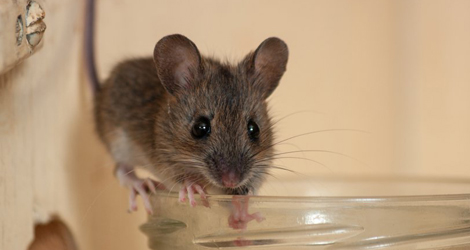Rat Control New Westminster: Effective Strategies for Safe and Lasting Results
Rats in New Westminster pose threats beyond mere nuisance by causing property damage and health risks. Successfully managing a rat infestation requires professional and targeted control methods to ensure effective elimination and prevention.
The best approach to rat control New Westminster involves prompt identification, thorough inspection, and safe removal by expert pest services. Local pest control companies offer specialized solutions that address the specific challenges of the area, ensuring homes and businesses stay rat-free.
Understanding how to recognize signs of infestation and enlist the right professional can save time and reduce further damage. Effective rat control is essential for maintaining a healthy and secure living or working environment in New Westminster.
Effective Rat Control Solutions in New Westminster
Rats in New Westminster require targeted approaches based on clear detection, professional tactics, safe home remedies, and seasonal adjustments. Addressing infestations quickly reduces property damage and health risks. The following details focus on practical ways to identify, manage, and prevent rat issues effectively.
Signs of a Rat Infestation
Detecting rats early depends largely on observing physical and behavioral indicators. Look for droppings, which are dark, pellet-shaped, and commonly found near food sources or along walls. Another sign is gnaw marks on wiring, wood, or packaging.
Rats often create nests using shredded materials like paper or fabric in hidden areas. Unexplained noises such as scratching or scurrying, especially at night, indicate active rodents. Grease marks or rub lines on walls and baseboards also suggest regular rat movement.
Odors from urine or musty nests can be strong in confined spaces. Timely identification based on these signs allows for focused control efforts before infestation severity increases.
Professional Extermination Methods
Professional pest control in New Westminster uses a comprehensive approach including inspection, exclusion, and removal. Experts first identify entry points like gaps, drains, or vents, then seal them to prevent re-entry.
They deploy bait stations containing rodenticides, traps, or monitoring devices that are strategically placed for maximum effect and safety. Professionals tailor strategies to the specific environment, minimizing risks to pets and residents.
Some services offer warranties extending protection for months or years. They also provide ongoing monitoring and follow-up visits to ensure rat populations are fully eradicated and do not return.
Safe DIY Rat Removal Techniques
Homeowners can take effective measures using non-toxic traps and sanitation practices. Snap traps and electronic traps are preferred for quick, humane capture and can be placed along walls or known travel paths.
Maintaining cleanliness by removing food scraps, securing garbage bins, and storing pet food in sealed containers reduces attractants. Caulking small holes and screening vents helps block rat access points.
Natural repellents like peppermint oil or ammonia-soaked rags may discourage rodents but typically need to be part of a broader control plan. Regular monitoring and prompt removal of caught rats are essential to prevent odors and secondary infestation.
Seasonal Rat Control Strategies
In New Westminster, rat activity often increases in cooler months when they seek warmth and food indoors. Fall and winter thus require heightened vigilance and preventive measures.
Inspecting buildings prior to cold seasons to seal gaps and reinforce barriers limits indoor entry. Removing outdoor debris, wood piles, and excess vegetation reduces available shelter.
Using bait stations outside during migration periods can intercept rats early. During warmer months, maintaining sanitation is critical to avoid establishing nests nearby. Adapting control efforts by season improves long-term success in managing rat populations.
Prevention and Long-Term Rat Management
Effective rat control requires a combination of structural barriers, regular inspections, and awareness of health threats. By securing entry points, maintaining vigilant monitoring, and understanding risks, property owners can significantly reduce rodent presence and protect their environment.
Rodent-Proofing Your Property
Sealing all potential entry points is critical. Rats can enter through holes as small as a quarter inch. Use steel mesh, metal flashing, or cement to block gaps around pipes, vents, doors, and foundation cracks.
Proper waste management also deters rats. Store garbage in sealed containers and remove food sources promptly. Overgrown vegetation near buildings should be trimmed, as it provides shelter and pathways.
Installing door sweeps and repairing damaged screens further limit access. Property maintenance combined with structural reinforcement forms the first line of defense against infestations.
Ongoing Monitoring and Maintenance
Regular inspections identify early signs of rat activity, such as droppings, gnaw marks, and burrows. These should be done monthly, especially in areas like basements, attics, and storage rooms.
Set traps and bait stations in strategic locations as part of continuous control. Keep them checked and maintained to ensure effectiveness.
Maintaining cleanliness inside and outside the property is essential. Clear clutter, store food properly, and fix leaks to remove water sources that attract rodents.
Documenting findings helps track trends and adjust prevention strategies over time, reducing the chance of re-infestation.
Health Risks Associated With Rodents
Rats carry pathogens that can transmit diseases such as leptospirosis, hantavirus, and salmonellosis. They contaminate food and surfaces through urine, droppings, and hair.
Physical damage is also a concern. Rats gnaw on electrical wiring, risking fire hazards and costly repairs.
Infestations may aggravate asthma and allergies by spreading allergens. Prompt control minimizes these health dangers.
Awareness of these risks should motivate property owners to prioritize prevention and swift action when signs of rats appear.






